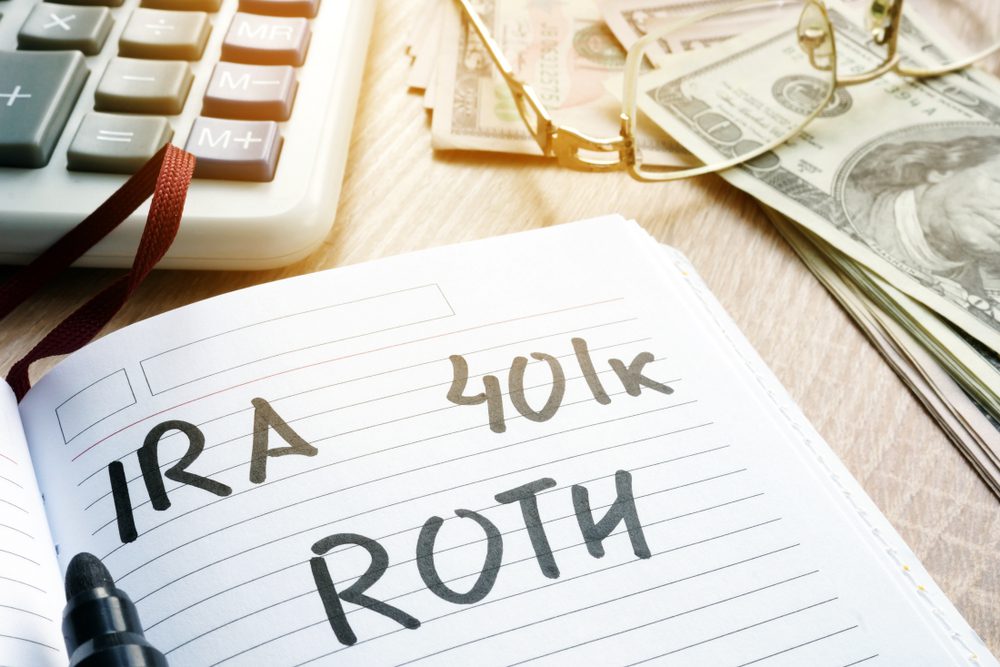We are sure that you’ve heard about bucket lists before, but have you ever heard about the anti-bucket list? Today, we want to tell you about some of the worst retirement experiences that no one wants to go through.
Every day, over 10,000 individuals retire with hopes for tomorrow and a long list of things they want to do. Unfortunately, troubles that could have been prevented with proper planning may happen to a lot of retirees.
Indeed, you can’t predict some things, like your health, the tax rates, or the financial market, but what you can do to avoid unpleasant surprises is to always be prepared.
Read on and discover some of the most common retirement blind spots that no one wants to experience.

1. Tight budgets that are based on the market
Markets exhibit historical patterns that are only sometimes positive. For example, there are market collapses every seven to eight years, or there are flat market cycles that last ten years or more and appear roughly every twenty years.
Receiving income from a bank account that has previously suffered losses could worsen the situation, making it more difficult to maintain financial security for retirement. This whole phenomenon is known as the sequence of return risks.
It is not that unusual for a lot of retirees to tighten their budgets every time a decline in the market occurs. Another strategy is that they use annuitized income streams when hard times are coming. Not having enough money during your golden years is easily one of the worst retirement experiences.
Experts say that both of the previously presented strategies are not the best approach you can take. If you want something more effective, try a Principal-Guaranteed Reservoir. This is a much safer approach, and it can offer protection for your income.
2. Worst retirement experiences: Working for longer than you want
It is very common to encounter the classic misconception that, before retirement, you need to try to accumulate a certain amount of money and work until a specific age until you have managed to save all of the necessary money.
This is an extremely oversimplified way of thinking, and it is better to learn before you decide to follow any path. You might be able to retire earlier than you had thought if you make a comprehensive financial plan that takes into account your particular financial circumstances and lifestyle preferences.
Sometimes there are people who, once they retire, decide to take part-time gigs because they want to maintain their financial stability. And there is nothing wrong with that. But working longer than you want can be one of the worst retirement experiences.
After retirement, working should be a choice, not something you must do because you can’t sustain your lifestyle. Time is precious, and you should enjoy it as much as possible.
3. Managing high-interest debt
It all depends on your financial status, but as a general rule of thumb, if everything is in place and it all aligns with your current deposits, you can have low-interest debt. It shouldn’t be such a big inconvenience.
You could maintain some low-interest debt, whereas other people who prioritize financial security might pay it off. It is all based on your particular circumstances and choices. All that matters is what you desire and what you feel confident in.
No matter what, remember that if you don’t want your debt to become one of the worst retirement experiences, the best thing you can do is not have high-interest debt if you think you can’t afford it. It’s a slippery slope, and it is better to pay it off if you feel like it might be hard for you to carry it with you during retirement.
4. Loneliness
Usually, people don’t take this seriously. Many of them underestimate the loneliness that can take over their lives once they retire. We are used to always having contact with other people, especially at work. Be it meetings or small workplace interactions, all of these play an important role, and this realization might come only after you no longer have them.
This is even worse for those who are single. It can easily be one of the worst retirement experiences, but hopefully, there are a few things that can help. People who are single should try to keep some kind of social contact, no matter what. This can mean engaging in social activities, taking part in community groups, and volunteering.
This is a serious topic, as loneliness can accelerate the physical and mental decline of some people and, in the end, negatively affect their whole life.
5. Supporting your children
If you have children, you might want to be the best parent in the world, and there is nothing wrong with that, but sometimes it can be a draining task, and even more, it can transform into one of the worst retirement experiences.
And now we don’t talk about your children who are in need; we are talking about children who are capable and make their own money, who have their own lives. Sometimes your children don’t need your help anymore, and you might also not be capable of helping them.
Your assets are meant to help you and your chosen standard of living first. Put your financial security before providing your kids with an excessive amount of help.
6. The “just-in-case retirement” strategy
This is something many people go through due to the fear of running out of money. This thought can be quite scary and creates a lot of pressure.
When everything is so unstable, you will do everything you can to create some kind of financial stability, which means constraints and restrictions on your budget. It is not really comfortable, if you ask us. Also, many times all of these restrictions will be unnecessary, and this means you stressed all of those years for nothing.
Your objective is supposed to be to create a retirement plan that will allow you to make the most of your early golden years while you’re still active and healthy. Don’t let this uncertainty become one of the worst retirement experiences.
7. Financial hardships and poor health
When you make your retirement plan, health should be a top priority. This is a rule every person should follow, and if things don’t go as planned, this is easily one of the worst retirement experiences.
When one spouse’s health causes the other to experience financial hardship, this is for sure a terrible scenario that no one wants to go through. This is why, if you can afford it, you should always choose self-insurance.
For people who do not have as much time or resources to prepare, using asset-based long-term care insurance might be a smart alternative that can prevent possible damage to the overall estate.

8. Legacies and what is left behind them
Leaving a legacy is not that easy, and if you don’t know how to deal with estate planning, every wrong step can lead to ruined relationships and regrets.
Make sure that your heirs have the financial means to maintain any assets, such as vacation homes, that you want to leave behind. Ensure that any family valuables you possess are listed on your estate forms.
When writing the needed documents, try to be as clear as possible, because this can help you avoid a lot of misunderstandings. Help your heirs avoid difficult situations and make your wishes clear.
If you want to learn more about finances and retirement, the following book might help: How Much Can I Spend in Retirement?: A Guide to Investment-Based Retirement Income Strategies
You should also read: 6 Essential Money Decisions All Retired Couples Have to Make










